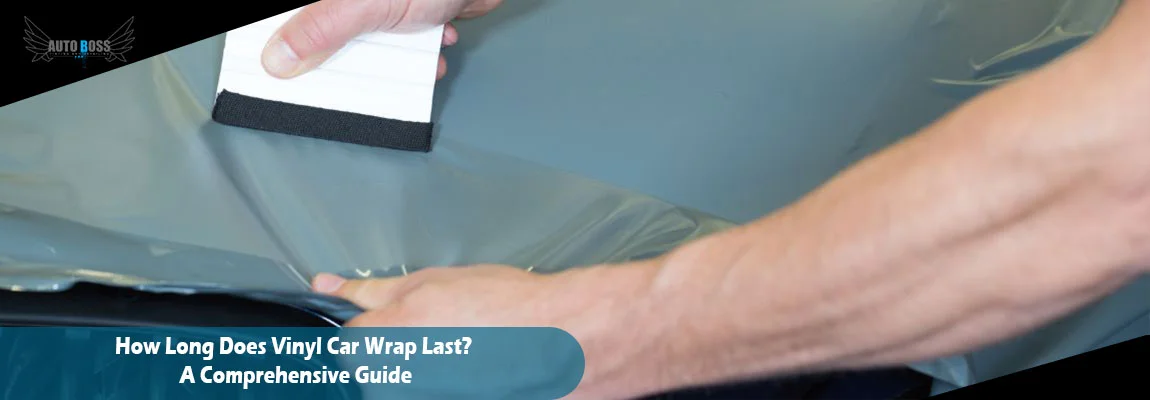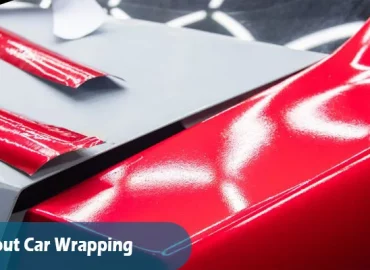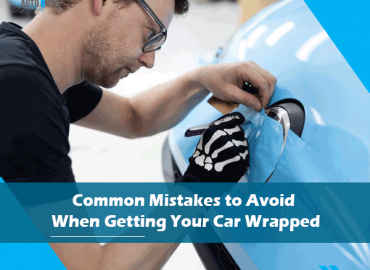Vinyl car wraps have become popular among car enthusiasts. Vehicle owners want to give their vehicles a fresh, unique look. Beyond aesthetics, vinyl wraps offer a layer of protection for a vehicle’s paintwork. However, one of the most common questions people have when considering a vinyl car wrap is: How long does it last? In this comprehensive guide, I will guide you about the factors that influence the lifespan of vinyl car wraps. I will also provide you with tips on how to extend their durability.
I. Understanding Vinyl Car Wraps
Before talking about the longevity of vinyl car wraps, it’s essential to understand what they are and how they work. Vinyl car wraps are large sheets of adhesive vinyl. These wraps are applied to the surface of a vehicle, covering its original paint. Car wraps come in various colors, textures, and finishes. Vehicle owners can customize the appearance of their cars, trucks, or motorcycles through them.
A vinyl car wrap consists of three layers:
Vinyl Film: This is the top layer of the wrap, which provides color and protection. It comes in different textures and finishes, such as gloss, matte, satin, or metallic.
Adhesive Layer: Below the vinyl film, there’s an adhesive layer. It sticks the wrap to the vehicle’s surface. This layer is crucial for the wrap’s longevity and its ability to adhere to the contours of the vehicle.
Liner: The liner is the backing material. It protects the adhesive layer until it’s ready for application. The installer removes this during the installation process.
Now that we have a basic understanding of vinyl car wraps let’s explore the factors that determine how long they last.
II. Factors Influencing the Longevity of Vinyl Car Wraps
These are the factors that influence lifespan of vinyl car wraps
Quality of Materials
The vinyl wrap quality material itself is a significant factor in how long it will last. High-quality vinyl wraps withstand harsh weather conditions, UV radiation, and everyday wear and tear better than lower-quality alternatives.
Installation
A vinyl car wrap’s longevity depends on its proper installation. Even the best vinyl material will only last if it’s applied. It’s essential to have the wrap installed by a professional with experience in vinyl wrapping to ensure it adheres without defects.
Environmental Factors
The environment affects the longevity of vinyl car wraps. Exposure to extreme heat, cold, and UV radiation can cause the wrap to deteriorate faster. Vehicles parked outdoors for extended periods may experience quicker wear and tear compared to those in garages.
Maintenance
Keeping vinyl car wraps clean can extend their lifespan. Use a detergent with pH neutral to wash your vehicle, and then wipe the surface with a soft cloth. Avoid harsh chemicals in order to prevent premature degradation of the wrap. Additionally, waxing the vinyl wrap can help protect it from UV rays and minor abrasions.
Usage
The way you use your vehicle can also affect the lifespan of the vinyl wrap. If your vehicle is subjected to heavy-duty tasks, such as off-roading or frequent highway driving, the wrap may experience more wear and tear than if the vehicle is used for city driving.
Type of Vinyl
Different types of vinyl wraps have varying lifespans. Cast vinyl, for example, is more durable and long-lasting compared to calendar vinyl. It’s important to choose the right type of vinyl for your specific needs and budget.
III. Typical Lifespan of Vinyl Car Wraps
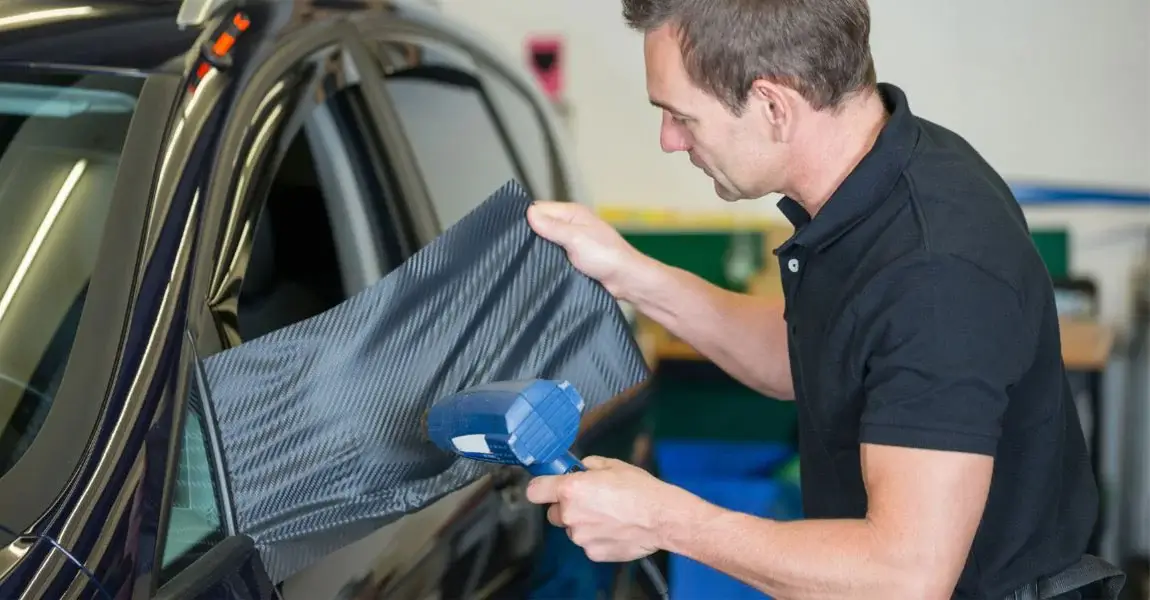
On average, a well-installed and maintained vinyl wrap can last between five and seven years. However, several factors can influence this lifespan, as discussed above. Let’s explore some of the key factors that affect how long a vinyl car wrap lasts:
Quality
High-quality vinyl wraps from reputable manufacturers tend to have a longer lifespan. These wraps are designed to resist fading, peeling, and other forms of deterioration.
Installation
A professional installation is critical for the longevity of a vinyl wrap. When installed, the wrap adheres to the vehicle’s surface, reducing the likelihood of edges lifting or bubbles forming.
Maintenance
Regular washing and waxing can help preserve the vinyl wrap’s appearance and protect it from the elements.
Environmental Conditions
Vehicles exposed to harsh weather conditions or prolonged sunlight may experience faster wear and tear. If your vehicle is often parked outdoors, consider investing in a high-quality UV protectant to extend the life of the vinyl wrap.
Type of Vinyl
Cast vinyl wraps are known for their durability and are often used for long-term applications. If you want a vinyl wrap that lasts, consider opting for cast vinyl.
Usage
The way you use your vehicle matters. Vehicles used for commercial purposes or subjected to heavy-duty tasks may experience more wear and tear on the vinyl wrap.
Color and Finish
Glossy and metallic finishes may be more prone to showing imperfections and wear over time. But matte or satin finishes show fewer imperfections. The color and finish you choose can impact the wrap’s appearance and longevity.
IV. Signs Your Vinyl Car Wrap Needs Replacement
Even with proper care and maintenance, vinyl car wraps will reach the end of their lifespan. It’s essential to recognize the signs that say your wrap may need replacement:
Fading: Gradual fading of the wrap’s color, especially in areas exposed to direct sunlight, is a common sign of aging.
Peeling or Lifting Edges: If you notice any edges or corners of the vinyl wrap lifting or peeling away from the vehicle’s surface, it’s a clear sign that the wrap needs attention.
Cracks or Tears: Small cracks or tears in the vinyl can allow moisture and debris to get underneath the wrap, leading to further damage.
Bubble Formation: The appearance of bubbles or blisters under the vinyl wrap is a sign of adhesive failure. You must address this problem as soon as possible.
Visible Wear and Tear: Over time, you may notice scratches, scuffs, or other visible signs of wear on the wrap’s surface.
Loss of Adhesion: If the vinyl wrap starts to lose its adhesion to the vehicle’s surface, it can create an uneven appearance.
When you observe any of these signs, it’s advisable to consult with a professional vinyl wrap installer. A professional installer will assess the wrap’s condition and determine if it needs replacement or not.
V. Tips for Extending the Lifespan of Your Vinyl Car Wrap
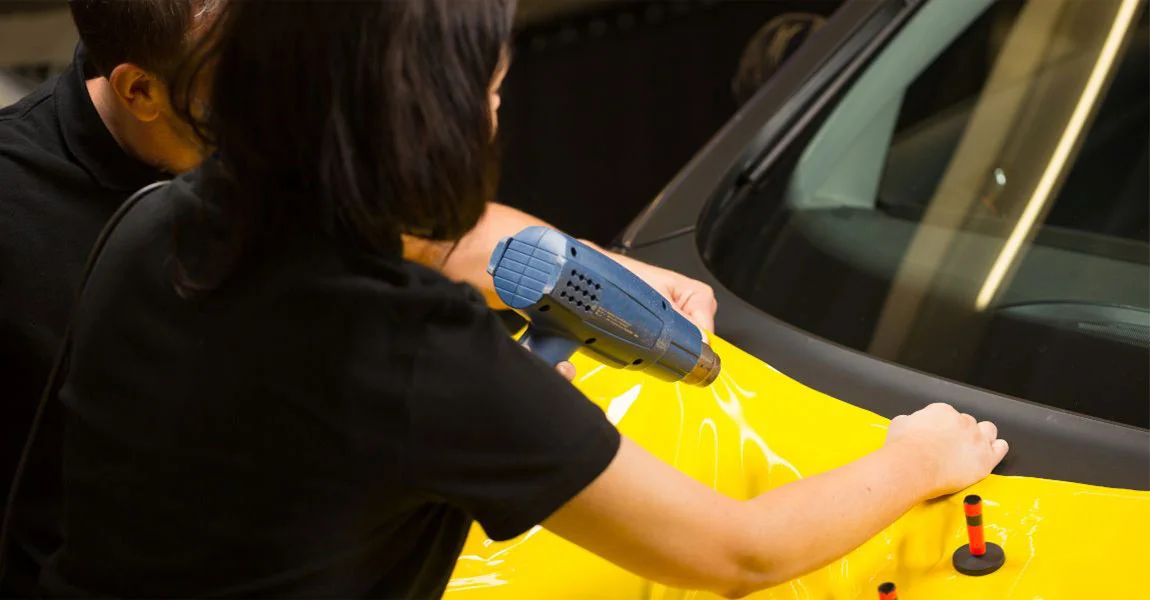
To make the most of your vinyl car wrap and extend its lifespan, follow these tips:
Regular Cleaning
Wash your vehicle regularly with a mild cleaning solution and sponge or a soft cloth. Don’t use abrasive materials or harsh chemicals. Harsh chemicals or abrasive material can damage your wrap.
Waxing
Apply a vinyl-specific wax or protectant to the wrap. It provides an extra protection layer against UV rays and minor abrasions.
Garage Storage
Park your vehicle in a garage or a shaded area to protect it from the environmental elements.
Avoid Scratches and Impact
Be mindful of potential sources of damage like tree branches, sharp objects, or impacts from other vehicles.
Professional Maintenance
Schedule regular inspections with a professional installer to address any issues.
Conclusion
Vinyl wraps can last longer if you get them installed professionally and take good care of them. Auto Boss Vaughan not only provides you with professional installation of vinyl car wrap, but it can also help you maintain them. Contact us for further information.

